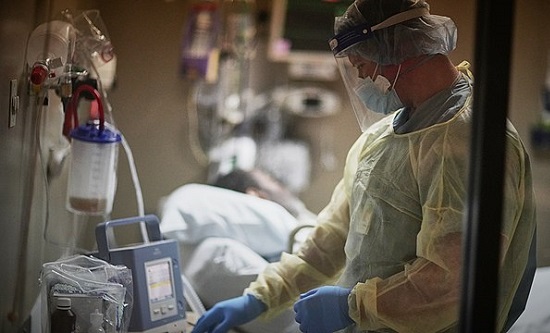
More than 50,000 deaths have been reported across England as a direct result of Covid-19 (deaths within 28 days of a positive test), and over 57,000 across the UK. This is not the true count of deaths as a result of the pandemic: not included are those who had Covid-19 but did not have it recorded on their death certificate, those who died because they could not get life-saving treatment as the NHS did not have the capacity to offer the necessary care, or because people were afraid to attend A&E until it was too late. These contribute along with Covid-19 deaths to the so-called excess deaths of the pandemic. Their total cannot be counted directly, but only estimated by comparing the number of deaths from all causes over similar periods in previous years. Excess deaths in England during the period February to May 2020 alone were 55,000 (compared to a baseline average for the same period 2015-2019): Public Health England (PHE) calculates that England had the highest excess all-cause age-standardised mortality rates among 23 European countries.
Research by the Health Foundation has shown that between January and August 2020, there were 4.7 million fewer people referred for routine hospital care in England by their GPs, compared to the same period in 2019. This is a reduction of 34% and includes people waiting for life-changing interventions such as hip, knee and cataract surgery. In England and Wales, 2.5 million people have missed out on investigations, treatments or procedures. The cancelled operations and delayed treatments are easy to count, but the hidden impact includes:
- up to 1.5 million fewer general and acute admissions,
- 6 million fewer first general outpatient appointments,
- about 28,000 fewer urgent cancer referrals with almost 26,000 fewer people starting cancer treatment after a decision to treat had been made,
- up to 15,000 fewer people starting first cancer treatments following urgent GP referral.
Over 35,000 people who would normally be urgently referred to hospital with suspected cancer symptoms since the end of March were not referred. In November 2020, with the second national lockdown for England, routine operations were cancelled again.
The NHS has one of the lowest hospital bed numbers per head in Europe. There are 246 beds per 100,000 population in Britain, compared to 800 per 100,000 in Germany. Britain also has 100,000 vacancies in the NHS, a significant factor in the staffing capacity for the Nightingale field hospitals in London, Manchester, Harrogate and Sunderland. £1.5bn emergency funding went into the Nightingale hospitals although they were underused in the first months of the pandemic, while early discharges from hospital to care homes accelerated the spread of coronavirus and number of subsequent deaths. A shocking 18,000 excess care home deaths were seen in the first few months of the pandemic. Altered ambulance service thresholds for transfer to A&E significantly affected the numbers who received emergency treatment, with many unwell people left at home. This, along with other factors, resulted in a fall in A&E attendance in Britain, 57% in April 2020 alone.
Backdrop
The Health and Social Care Act in 2012 moved public health from the NHS to local authorities whose budgets have been hardest hit by cuts. Local authority budgets were cut by nearly a third from 2010 to 2018 and the public health grant fell by £700m between 2014/15 and 2019/20. Austerity has been a factor contributing to falling life expectancy, rising inequalities across Britain and increased years of life lived in poor health. Now Covid-19 has been shown to be almost twice as deadly for the poorest sections of the population. The Institute for Public Policy Research found that ten years of austerity had led to four in five hospitals in England having dangerously low spare capacity, as well as poor staffing levels and a lack of crucial equipment. Of 114 non specialist acute care trusts surveyed after the onset of the pandemic, 83% of the workforce risk was attributed to insufficient staffing levels, while 69% of the surveyed hospitals reported risks linked to capital and infrastructure.
The underfunding and therefore destruction of the British public health system has been so significant that there are no longer the resources to lead and run an adequate pandemic response. The number of Communicable Disease consultants was down to a third of what it was in the time of the Health Protection Agency (HPA). PHE, which replaced the HPA, was overwhelmed by mid-March 2020; it halted its contact tracing programme as it could not keep pace with the spread of the virus just when the WHO was saying that testing was a priority. Rather than build up state-run capacity, the Tory government’s response was to put its money into the pockets of private firms like Serco whose priorities are profit.
Britain has pre-ordered 40 million doses of the Pfizer Covid-19 vaccine from Germany and Belgium, sufficient to vaccinate the first 20 million people. It is said that GP practices and staff will be giving the vaccine seven days a week and hospital staff will be called in to help, with the army at the ready if needed. This use of GPs and other surgery staff will have a further impact on the backlog of people with unmet health needs, while access to routine care at GP surgeries will inevitably be reduced.
Capitalism has been exposed by the pandemic as the savage system it is, unable and unwilling to prioritise people’s health and lives. The years of systematic dismantling of the NHS, and austerity policies disproportionately affecting working class communities, has left them most vulnerable to the health and economic impacts of the pandemic. Only if we fight for a nationalised health service, properly staffed and funded, free at the point of delivery, with equitable health protection and promotion, will we ever be able to respond to a pandemic of this scale.
Hannah Caller




